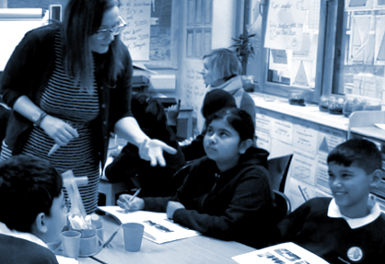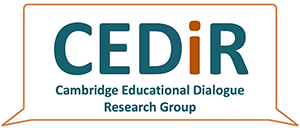CEDiR has five inter-connected Research Strands each led by core members of the group
 Dialogue, Professional Change and Leadership
Dialogue, Professional Change and Leadership
This strand focuses on professional learning and change in and through dialogue in organisational settings: schools, hospitals and beyond, addressing current challenges in the UK and globally, relating to policy, practice, theory and methodology.
Strand Leader: Riikka Hofmann
 TechCEDiR, or CAMTED
TechCEDiR, or CAMTED
The TechCEDiR strand, also known as CamTED (Cambridge Technology and Educational Dialogue), targets the investigation of technology's role in communication, dialogue, and the construction and dissemination of human knowledge. The research within this strand adopts multiple approaches, including but not limited to, design-based research methodologies.
Strand Leaders: Rupert Wegerif and Steve Watson (with others including Alison Twiner).
 Classroom Dialogue
Classroom Dialogue
Theorists have been interested in the forms of classroom dialogue that are productive for student learning for several decades. Although a plethora of terminologies and methodological approaches abound, this strand seeks to identify common ground and to enhance practices that are productive for learning.
Strand Leader: Sara Hennessy.
 Cultural, religious and philosophical traditions in educational dialogue
Cultural, religious and philosophical traditions in educational dialogue
This strand focuses on the interaction of dialogue for educational purposes and religious, cultural and philosophical traditions in educational theory, institutions and practices. Within this broad remit, it has two focal threads: intra-tradition and inter-tradition.
Strand Leader: Farah Ahmed
 Multimodal dialogue
Multimodal dialogue
This strand examines the ways in which multimodal communication and its related practices transverse across a wide range of educational discourses and open up expansive opportunities to reconsider policy, curricula, and pedagogies.
Strand Leader: Emma Cooper and Alison Twiner

